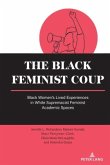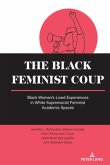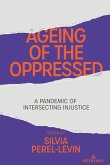In this book, we argue that authoritarian forces are working harder than ever to maintain, reinstate, and pass laws and policies that are antithetical to a kind, equitable, and socially just society that meets all of its citizens' needs. American cultural hegemony-the dissemination process by which people are persuaded through laws and policies, institutional and cultural ideologies, norms, values, and practices to privilege the interests of powerful, disproportionately white, highstatus, and wealthy individuals and families-is ubiquitous. We learn to take for granted that the capitalist, social caste system in which we live, in largely segregated, racial, ethnic, and social class communities, is the best and fairest of all possible systems and just 'the way things are.' For example, large numbers of media and educational programs sell white supremacy, racism, social caste, sexism, and other forms of discrimination, as normal, natural, and common sense. Few schools teach children to become critically conscious of the hegemonic process by which social hierarchy in the United States has been handed down over more than four hundred years.
Our research in this book names some of the above-mentioned laws, policies, and ways of framing reality that maintain the inequitable system in which we live, and silence and traumatize students, faculty, staff , and social justice activists in education and beyond. It also includes some alternative narratives being enacted by extraordinary educators, supporting collective action, critical consciousness, accountability, hope, equity, and social justice. Despite some social change, social caste continues to de- ne our lives. So, those of us who value democracy, equity, and social justice need to contribute, collectively and individually, to help our students and communities see through the gaslighting that conceals the lack of historical and current equity in our society-in other words, to recognize how cultural hegemony works to reproduce inequities.
Our research in this book names some of the above-mentioned laws, policies, and ways of framing reality that maintain the inequitable system in which we live, and silence and traumatize students, faculty, staff , and social justice activists in education and beyond. It also includes some alternative narratives being enacted by extraordinary educators, supporting collective action, critical consciousness, accountability, hope, equity, and social justice. Despite some social change, social caste continues to de- ne our lives. So, those of us who value democracy, equity, and social justice need to contribute, collectively and individually, to help our students and communities see through the gaslighting that conceals the lack of historical and current equity in our society-in other words, to recognize how cultural hegemony works to reproduce inequities.
"As censorship regimes ramp up today, it's important to remember that educational institutions have long functioned to silence diversity and criticality in various ways, even as such hegemony has always been contested in ways both obvious and not. In Vocalizing Silenced Voices, Lea, Thapa, and Hines provide us with a timely and practical framework for understanding who, how, where, and why institutions silence, as they humbly invite us into their own journey of creating spaces of resistance and movement building, showcasing through a rich tapestry of student voices that anti-oppressive education is messy, yes, but doable and enlivening as well." Kevin Kumashiro Author of "Surrendered: Why Progressive are Losing the Biggest Battles in Education"








